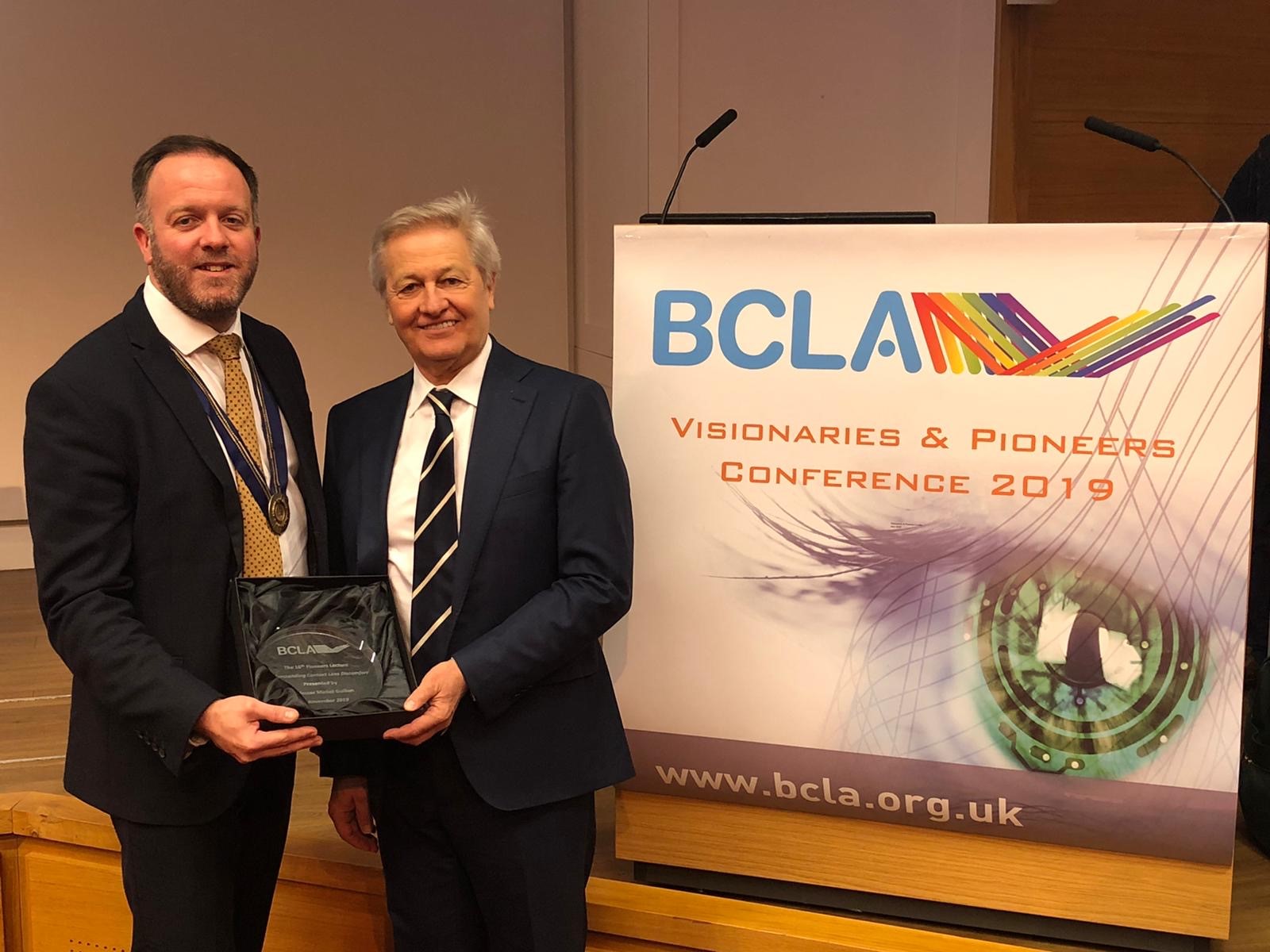BCLA conference delves into emerging practice

Professor Michel Guillon receives the 2019 Pioneers Award from BCLA president, Jonathon Bench
Eyecare practitioners attending the recent British Contact Lens Association (BCLA) Visionaries & Pioneers Conference were challenged to make the most of their opportunity to address myopia in a child’s formative years.
Contact lens drop-out rates and the possibilities offered by artificial intelligence (AI) also came under the microscope during the one-day event in London.
Delegates saw Professor Michel Guillon deliver the 2019 Pioneers Lecture, in which he described the issue of contact lens discomfort as “the biggest challenge we face in practice”.
He added: “Currently, 15 per cent of lens wearers drop out; of these, 50 per cent say it is because of discomfort. If we are losing 15 per cent a year, we need to find an additional 15 per cent just to stand still. If there is a problem, let’s deal with it early on. Let’s be proactive.”
Speaking during a session looking at whether orthokeratology (ortho-k) lenses should be used for refractive correction or myopia management, contact lens optician Shelly Bansal discussed his role as a pioneering ‘early-adopter’ of ortho-k at the start of his career.
He said: “It wasn’t mainstream practice, it was done for correction then, not myopia management. I decided to wear the lenses myself before trying them on patients and I could see why they would get so excited over the lifestyle benefits; it was like magic.
“The freedom ortho-k gives young people is a big plus, they much prefer it to wearing glasses. We have a duty to discuss myopia management with our patients and their parents but it’s essential we get the language right.
“Our younger patients are the future of our practices and their expectations are high. They are savvy and they have access to information and resources that we never had.”
Shelly was joined by Dr Jacinto Santodomingo-Rubido for the session, chaired by Nick Howard, which kicked off the annual meeting at the Royal College of Medicine in London.
Further sessions at the conference included Dr Vijay Anand and Shreeti Lakhani looking at the role of mini-sclerals, and Sarah Farrant and Indy Sian discussing dry eye from the viewpoint of both an optometrist and an ophthalmologist.
The final session gave a glimpse into the future with Dr Manbir Nagra, Dr Byki Huntjens and Dr Nikolas Pontikos examining the potential for AI to impact on anterior segment grading.
The programme was shaped by BCLA members and also featured an exhibition showcasing the very latest technology from sponsors.
The conference was one of the final events organised by outgoing BCLA chief executive, Cheryl Donnelly. BCLA president, Jonathon Bench, paid tribute to Cheryl’s “enthusiastic marvelousness”, which has seen her lead the organisation with passion, energy and determination for the past six years.